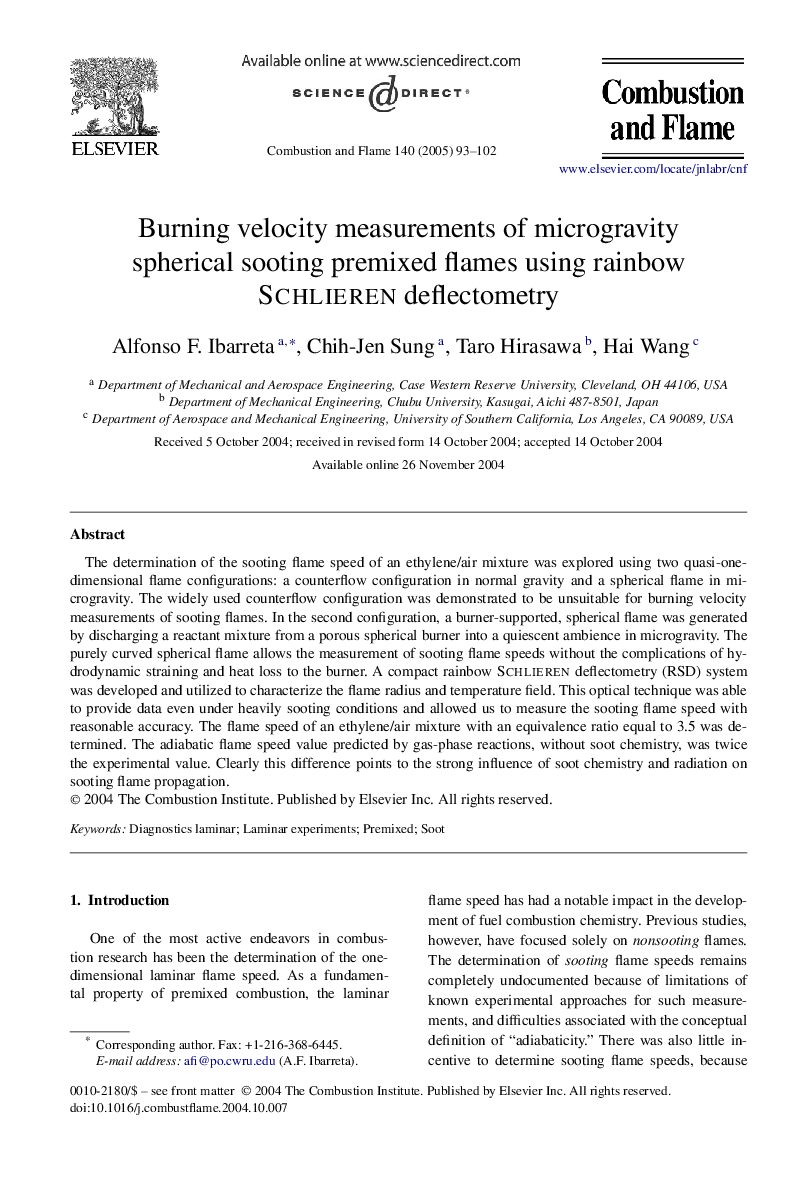| کد مقاله | کد نشریه | سال انتشار | مقاله انگلیسی | نسخه تمام متن |
|---|---|---|---|---|
| 9624549 | 458065 | 2005 | 10 صفحه PDF | دانلود رایگان |
عنوان انگلیسی مقاله ISI
Burning velocity measurements of microgravity spherical sooting premixed flames using rainbow Schlieren deflectometry
دانلود مقاله + سفارش ترجمه
دانلود مقاله ISI انگلیسی
رایگان برای ایرانیان
کلمات کلیدی
موضوعات مرتبط
مهندسی و علوم پایه
مهندسی شیمی
مهندسی شیمی (عمومی)
پیش نمایش صفحه اول مقاله

چکیده انگلیسی
The determination of the sooting flame speed of an ethylene/air mixture was explored using two quasi-one-dimensional flame configurations: a counterflow configuration in normal gravity and a spherical flame in microgravity. The widely used counterflow configuration was demonstrated to be unsuitable for burning velocity measurements of sooting flames. In the second configuration, a burner-supported, spherical flame was generated by discharging a reactant mixture from a porous spherical burner into a quiescent ambience in microgravity. The purely curved spherical flame allows the measurement of sooting flame speeds without the complications of hydrodynamic straining and heat loss to the burner. A compact rainbow Schlieren deflectometry (RSD) system was developed and utilized to characterize the flame radius and temperature field. This optical technique was able to provide data even under heavily sooting conditions and allowed us to measure the sooting flame speed with reasonable accuracy. The flame speed of an ethylene/air mixture with an equivalence ratio equal to 3.5 was determined. The adiabatic flame speed value predicted by gas-phase reactions, without soot chemistry, was twice the experimental value. Clearly this difference points to the strong influence of soot chemistry and radiation on sooting flame propagation.
ناشر
Database: Elsevier - ScienceDirect (ساینس دایرکت)
Journal: Combustion and Flame - Volume 140, Issues 1â2, January 2005, Pages 93-102
Journal: Combustion and Flame - Volume 140, Issues 1â2, January 2005, Pages 93-102
نویسندگان
Alfonso F. Ibarreta, Chih-Jen Sung, Taro Hirasawa, Hai Wang,